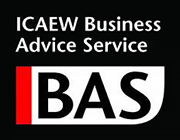Updated: 24th March 2020
What Are Disguised Remuneration Schemes
Disguised remuneration schemes are characterised by low payment or non-payment of tax and National Insurance, and are set up in a similar way to discretionary trusts. Payment is made in the form of loans channelled through a third party, typically an offshore trust.
These types of loans are used to replace the salaried income that would naturally attract tax and National Insurance through the PAYE system, but in reality their terms mean they’re unlikely ever to be repaid.
Tax avoidance schemes have been a focus of HMRC’s attention for some time and in 2011 legislation was introduced to clamp down on the practice of deliberately disguising income as a loan.
Due to the potentially severe financial impact of this clampdown, it’s important for directors to understand disguised remuneration schemes, how they work, and the implications of being a participant.
Legislation to prevent tax avoidance via disguised remuneration schemes
Within the two Finance Acts introduced in 2017, the government imposed a loan charge on loans made from 6th April 1999 within a disguised remuneration scheme, where tax affairs remain unsettled.
This loan charge could potentially be as much as 50% of the outstanding loan amount, and with a payment deadline of the end of January 2020, it represents a significant financial threat to those involved.
If you’re a limited company director and have participated in a disguised remuneration scheme, your tax liability and settlement requirements depend on whether you’ve already complied with HMRC’s demand for information.
If so, you may be eligible to use the November 2017 settlement terms offered by HMRC to limit your liability and pay in instalments.
What are the November 2017 settlement terms?
If you provided HMRC with all the required information on your outstanding loan(s) by the 5th April 2019 deadline, you can still settle your tax affairs under the November 2017 settlement terms.
These terms could include the ability to pay tax or NICs by way of an instalment plan taken over several years. This is clearly a more favourable option than paying a loan charge, which as we mentioned earlier could amount to half of the outstanding loan amount.
If you didn’t provide the necessary information by 5th April 2019, you have until October 2019 to provide particulars of the outstanding loan amounts to HMRC, otherwise penalties may be imposed in addition to the loan charge.





